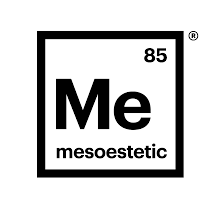Are you a medical professional considering offering advanced Botox and filler treatments to your patients? Offering a more comprehensive service and being able to perform more specialist techniques via advanced aesthetic training will help you take your career – and your earnings – to that next level.
What techniques are covered in the advanced Botox and filler courses?
Stage 1, or foundation, Botox and filler training offers a comprehensive grounding in the techniques for performing upper face Botox treatments and peri-oral dermal fillers.
These are the most popular applications, so once you’ve completed your training you’ll be equipped to offer basic anti-wrinkle treatment to your patients straight away.
But deciding to take your training a stage further with an advanced course allows you to broaden your repertoire and perfect more specialist techniques.
Different training providers will have different approaches to their advanced training, and specific course programmes will vary. But to give you an idea of what you can expect, here’s a brief outline of what we cover on our advanced Botox and filler courses:
Advanced Botox techniques
- Chemical brow lift
- Mentalis treatments
- Treatment of platysmal bands
- Cheek and jowl lifting
- Hyperhidrosis (excessive sweating) treatment
Advanced dermal filler techniques
- Vermilion border enhancement
- Cheek augmentation
- Cross hatching techniques
- Extended linear threading techniques
- Advanced peri-oral sculpting
- Combined filling – using different strengths of product to achieve optimum results
The emphasis of our advanced training is very much on practical hands-on experience, letting you focus on any areas requiring extra guidance and tuition.
The goal of advanced training is to equip you with the necessary skills to take a more holistic approach to treating your patients. Rather than simply targeting lines and wrinkles, you’ll be encouraged to pursue complete facial rejuvenation using more nuanced techniques. For example, adding volume to the mid-face area, sculpting the jaw and cheeks, or giving a subtle lift to the eyebrows.
Cosmetic Courses is one of the UK’s most established aesthetic training providers. Since 2001, our expert trainers have offered a wide range of aesthetic training, including Botox and filler courses, microdermabrasion and chemical peel, Dermaroller, PRP Therapy and more. For information on our training courses, please contact our team.











